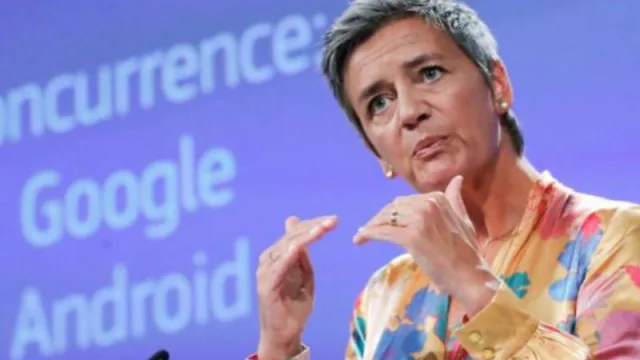-
Conflict Introduction:
The European Commission has initiated a new legal battle against Google, accusing the company of maintaining a dominant position in the online advertising market. According to the regulator, these practices go against European competition rules, and the possibility of Google divesting part of its advertising business has been raised as a solution to the conflict. In this report, we will explain the details of the accusation and analyze the implications this could have on the digital market.
-
What consequences could the possible divestment of part of its advertising business have for Google?
The European Commission has made it clear that a fine would not be sufficient to resolve the conflict with Google.
-
What other measures could be taken to ensure fair competition in the market?
"The Commission's preliminary view is that only the mandatory divestiture by Google of part of its services would address these competition concerns." - European Commission
"Google has a very strong market position in the online advertising technology sector. Our preliminary concern is that Google may have used its market position to favor its own intermediation services." - Margrethe Vestager, Vice-President of the European Commission and Commissioner for Competition.
Check out our previous report on a mega-fine imposed on Google by the European Commission:
Google, “del código de la discordia” a la mayor multa de la Unión Europea
-
Complete analysis of the new conflict:
The European Commission has presented a list of charges against Google, accusing the company of monopolistic practices in the online advertising market. According to the regulator, Google has violated EU antitrust rules by distorting competition through its technological services, such as Google Ads, which act as intermediaries between advertisers and publishers to display ads on websites and mobile applications.
The European body has highlighted that Google operates on both sides of the market, with its ad server for publishers and its ad-buying tools, giving it a dominant position in the sector. This situation has created conflicts of interest and harmed competitors, publishers, and advertisers.
The Commission has raised the possibility of Google partially divesting its advertising business as a measure to address the competition issues. This measure, according to the regulator, would be more effective than a behavior-based solution.
-
Key tip: How could this situation affect advertisers and publishers in the online advertising market? We explore the potential consequences.
According to the Commission's investigation, Google may have favored its own AdX tool in the ad selection auction by providing insider information about competitors' bids to win the auction. Additionally, it has been noted that Google Ads and DV360, the company's ad-buying tools, may have also favored their own ad exchange, avoiding competition's ad exchanges and increasing AdX's competitiveness.
These practices, dating back to 2014, have led the European Commission to conclude that Google has a very strong market position in the online advertising sector, spanning various levels of the advertising technology supply chain.
Margrethe Vestager, Vice-President of the European Commission and Commissioner for Competition, has expressed concerns about the potential harm to Google's competitors, as well as the interests of publishers and the increased costs for advertisers. According to Vestager, if confirmed, these practices would be illegal under EU competition rules.
-
Google, on the other hand, has responded to the accusations by claiming that its advertising technology tools.
Google, on the other hand, has responded to the accusations by claiming that its advertising technology tools contribute to financing website and app content and enable businesses to effectively reach new customers. The company has stated that the Commission's investigation focuses on a limited aspect of its advertising business and has rejected the allegations.
-
What will happen next?
This conflict between the European Commission and Google could result in a significant fine for the company, as well as the obligation to divest part of its advertising business in Europe. The consequences of these actions could have a significant impact on the digital market and bring about changes in how technology companies operate in Europe.
The European Commission's accusation against Google for monopolistic practices in the online advertising market raises important questions about competition and fairness in the digital sector. As this conflict unfolds and decisions are made, it will be crucial to observe how competition concerns are addressed and what measures are implemented to ensure a fair and transparent market.
The outcome of this case could set a precedent for future investigations and regulations in the online advertising field.












Tu opinión enriquece este artículo: